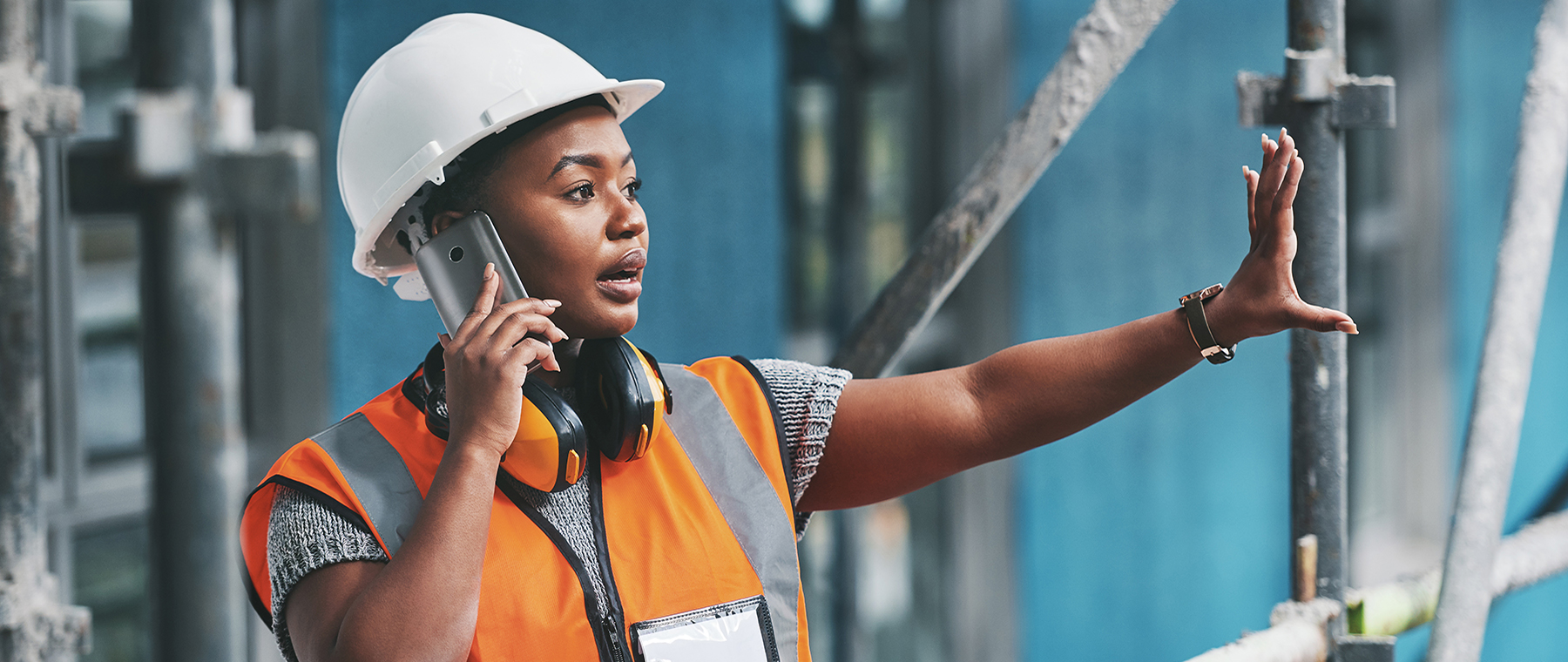How to promote positive mental health and wellbeing in the construction industry


The construction industry is critical for our economy, employing millions of workers across a wide range of occupations. It is known for its physically demanding work and challenging environments. However, among the concrete and steel, there lies a critical concern that often goes unnoticed—the mental health crisis and wellbeing of construction workers. Studies have shown that the construction industry has one of the highest suicide rates among all professions.
In this blog, we’ll explore the reasons behind these alarming statistics and how to break through these barriers to promote positive mental health and wellbeing for construction workers. Let's look at:
- Why are suicide rates higher in the construction industry?
- Tips for promoting wellness in the workplace.
Why are suicide rates higher in the construction industry?
According to the Centers for Disease Control and Prevention, men in construction experience one of the highest suicide rates. In fact, their rate of suicide is about four times higher than the general population, making it the second-highest rate among all workplace industries at 45 per 100,000. But why?
The high suicide rates among construction workers can be linked to a mix of work-related, personal and systemic factors that contribute to a challenging mental health environment. Understanding what contributes to this is the first step to developing effective strategies for tackling this issue. Let's explore some key reasons why suicide rates are higher in the construction industry:
Physically taxing jobs
Construction workers perform physically demanding tasks that can lead to chronic pain and injuries. The persistent pain they experience can contribute to mental health issues, including depression and anxiety. Work-related injuries are also common in this area –often resulting from distractions, overexertion and challenging environments. When workers are unable to take time off or afford treatment for their injuries, they continue working, which can worsen their condition and increase the risk of suicidal thoughts and substance abuse.
Workplace stressors
Construction projects often come with tight deadlines, high-pressure situations and strict rules and standards to follow, which can impact mental wellbeing, especially when combined with the physically demanding nature of the work. On top of that, workers might have to put in long hours, sometimes in challenging weather conditions, without enough time to rest or relax, leading to exhaustion and burnout. And let's not forget about the hazards on the job site – there's electrical wiring, heavy machinery, ladders, cramped spaces, scaffolding and other dangerous equipment. These can worry workers and increase their stress levels, potentially leading to long-term health issues.
Transient work in remote locations
Construction workers often work in remote locations with limited access to healthy food. Plus, they have to deal with extreme weather conditions, whether scorching heat or freezing cold —taking a toll on their physical and mental wellbeing. They are also constantly on the move, working on projects in different locations. So, it's not surprising they may feel isolated and lonely, lacking stable social connections and support systems. Spending long periods away from home and working in remote or temporary locations makes it more difficult to build strong social connections.
Cultural factors and substance abuse
Historically, the construction industry has fostered a culture that values toughness and resilience. Unfortunately, this culture often discourages workers from expressing vulnerability or seeking support for mental health concerns, further perpetuating the stigma surrounding mental wellbeing.
There is also evidence of elevated rates of substance abuse within the construction industry, which can lead to feelings of isolation, depression and even suicidal thoughts. Substance abuse is a known risk factor for mental health issues and makes existing challenges worse, sometimes leading to thoughts of self-harm.
Limited access and time
Construction work often involves long hours and leaves little time for breaks or wellness activities, and accessing healthy food on construction sites can be challenging. Poor nutrition and lifestyle choices can affect both physical and mental wellbeing. Sometimes, workers struggle to get the mental health support they need due to things like lack of awareness, stigma, or not enough support from their employers. This can make them hesitant to reach out for help.
Tips for promoting wellness in the workplace
To tackle mental health issues and create a healthier, safer work environment, construction companies can start by making employee wellness a priority. Reducing the burden on the individual by offering mental health services, onsite wellness programs and resources, and implementing safety protocols and training will all positively impact worker wellbeing and the company overall. Here are some tips to get started:
1. Implement employee wellness programs
Arguably, the most effective way to help construction workers overcome some of these challenges is with a comprehensive wellness program that addresses both physical and mental health. With better access to counseling services, stress management workshops, and resources for coping with chronic pain, employees won’t feel isolated and burdened. In addition, offer services that meet these workers in the field at their job sites – helping you reach more decentralized, part-time and seasonal workers. Bringing services to them will make it easier for them to address health concerns because they’ll have easier access and feel cared for.
2. Make preventative care a priority
Provide on-site access to healthcare professionals who can address physical ailments and offer guidance on maintaining a healthy lifestyle. Encourage and offer regular health check-ups to identify and address issues early through screenings for common construction-related health issues like respiratory programs, hearing loss and more. Offer health and safety training that educates workers on the importance of preventative care and covers the key common health risks and how to avoid them.
3. Promote open communication and collaboration
Create a safe space where workers feel comfortable talking about mental health and mental wellbeing. Encourage open conversations about stress, anxiety and other mental health challenges. It's crucial to train supervisors to recognize signs of distress and provide resources for support. You can also collaborate with mental health organizations and alliances for suicide prevention and work towards removing the stigma around mental health in the construction industry.
4. Offer flexible options
Recognize the demanding nature of construction work and implement flexible scheduling whenever possible –not only for the worker's roles and shifts but also their medical needs. This can allow workers to take breaks, attend wellness programs, and manage their work-life balance effectively. Virtual training, on-site wellness and fitness centers and more can make a big difference in their daily routines and lives.
5. Address key substance abuse concerns
Substance abuse is often linked to mental health issues. Implement programs that address and support those struggling with substance use disorders, offering assistance in seeking treatment. This not only helps them but can make the workplace safer for everyone.
Taking care of mental health in the construction industry is not only the right thing to do but also vital for their wellbeing. You can create a safe and supportive environment by tackling construction workers' specific challenges and taking proactive measures. Let's start the conversation, openly discuss mental health, and build a resilient construction industry that values the health of its most valuable asset — the employees.
let us help
Need guidance in developing and executing a comprehensive Mental Wellbeing Strategy?



